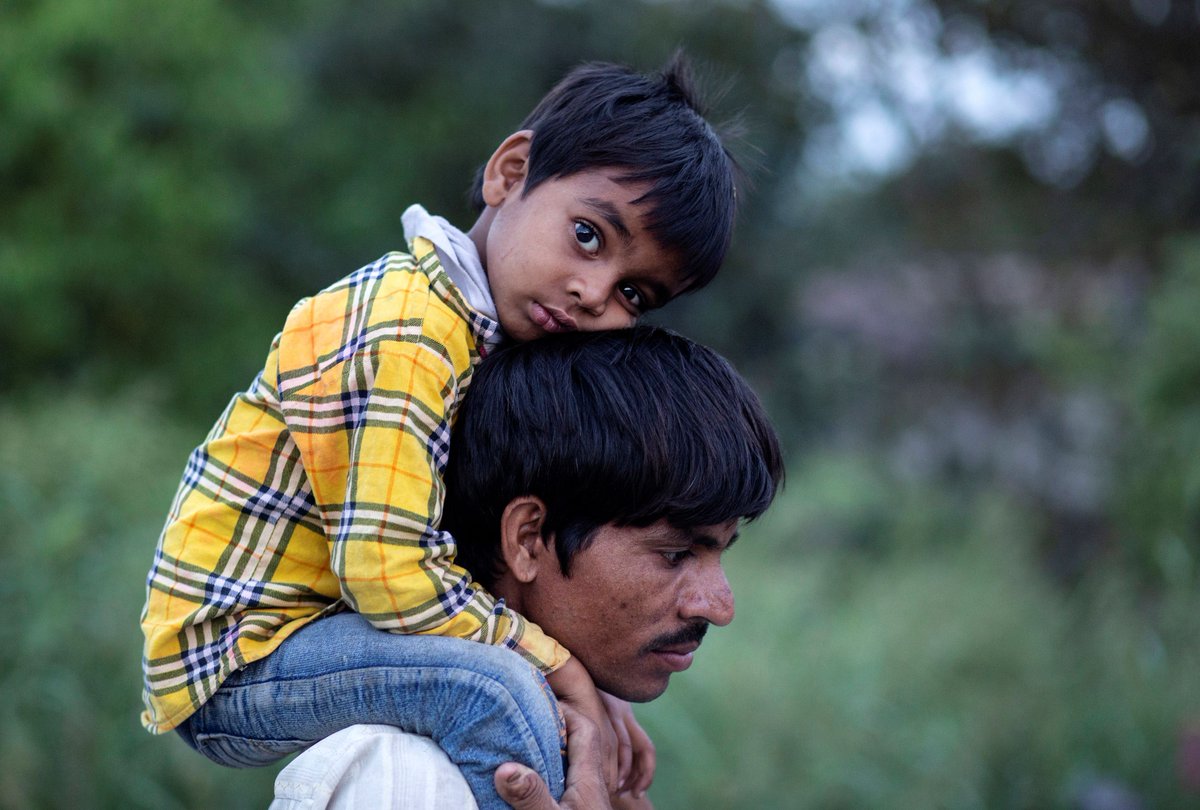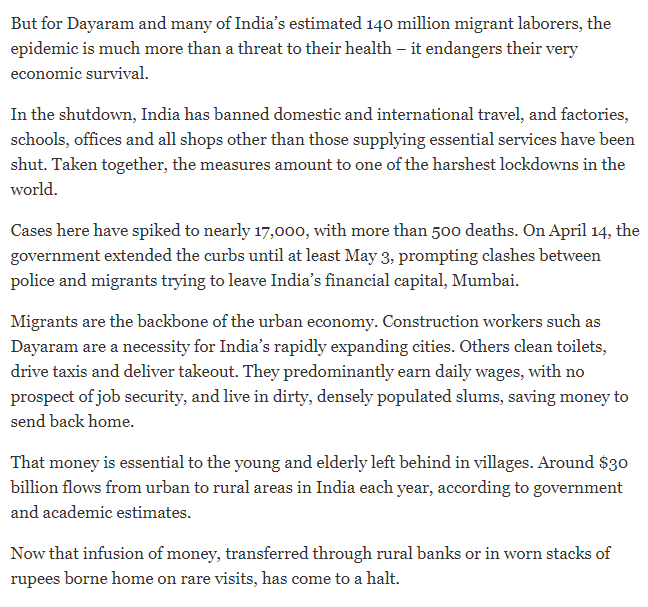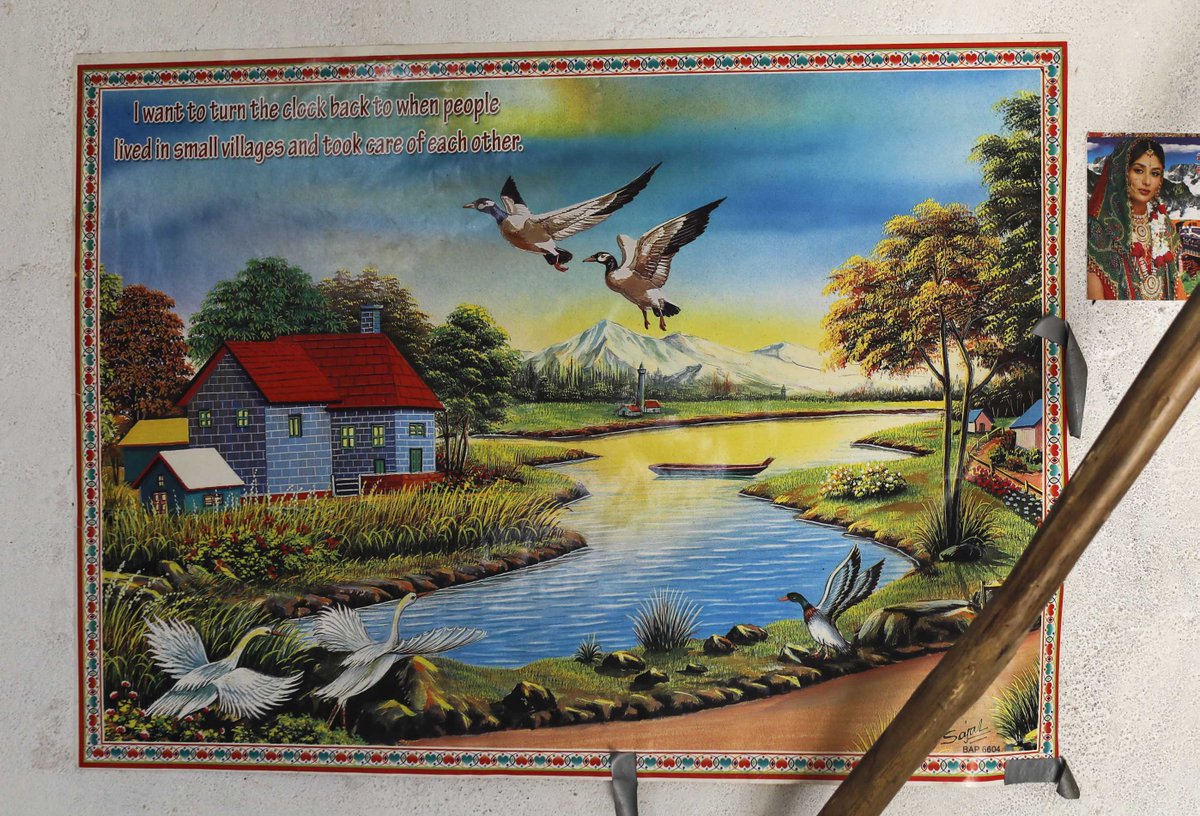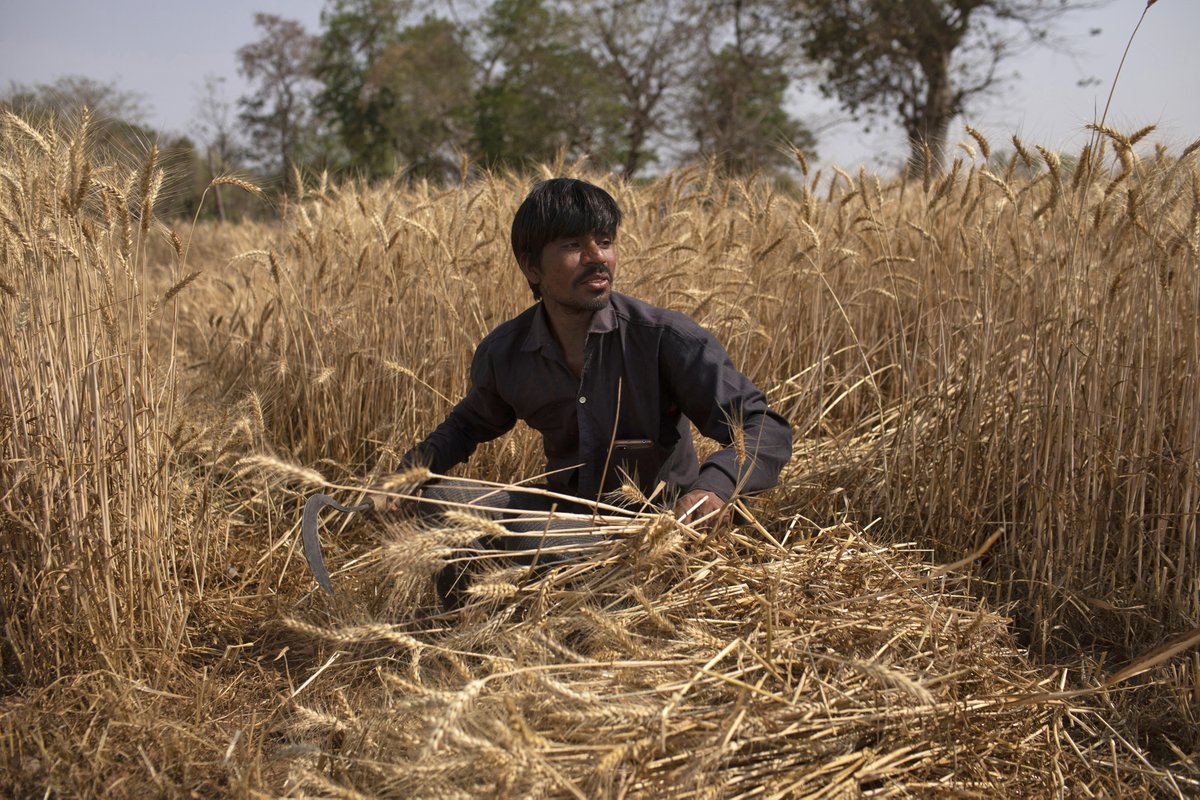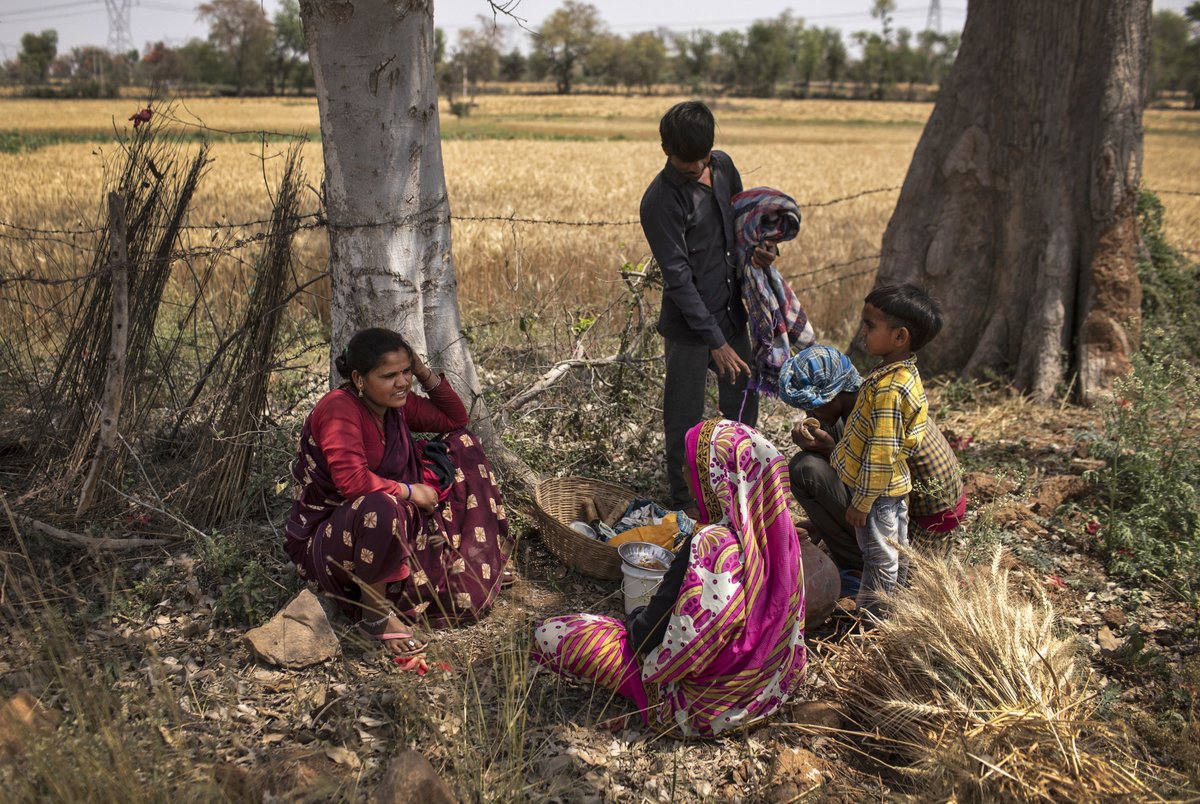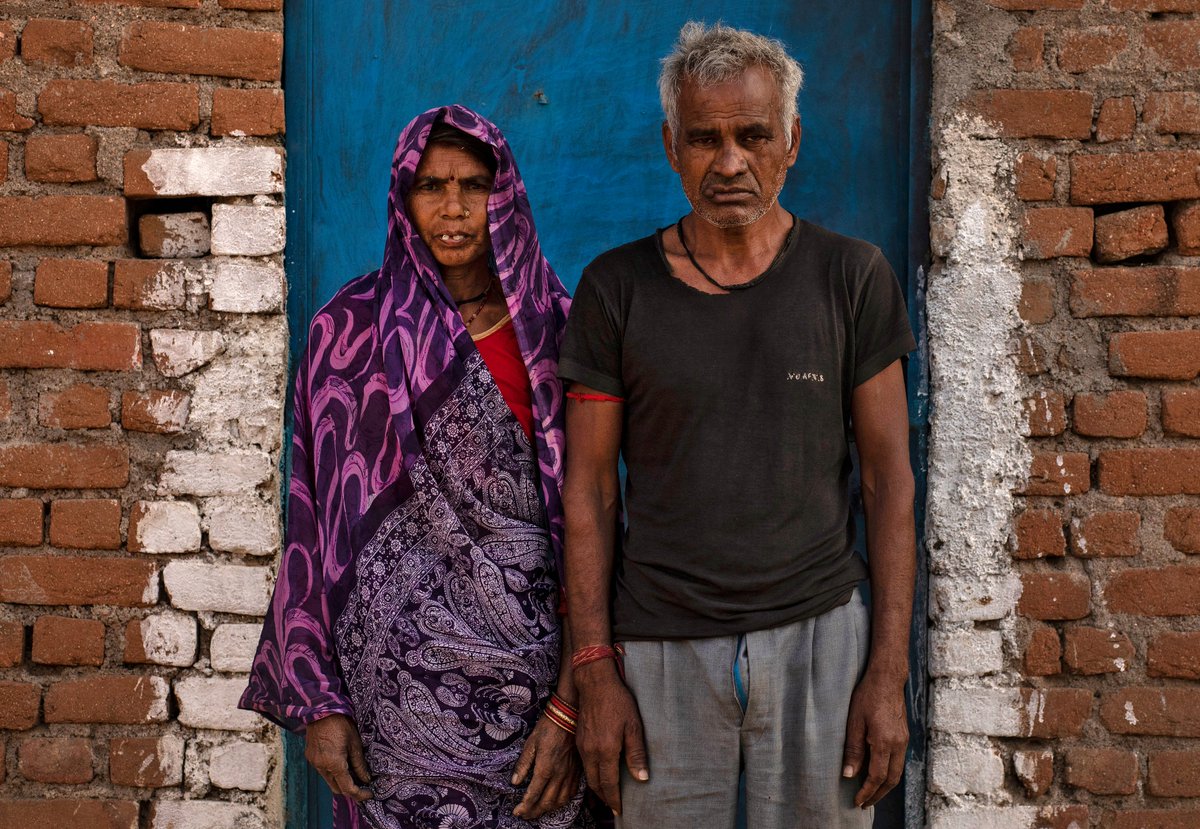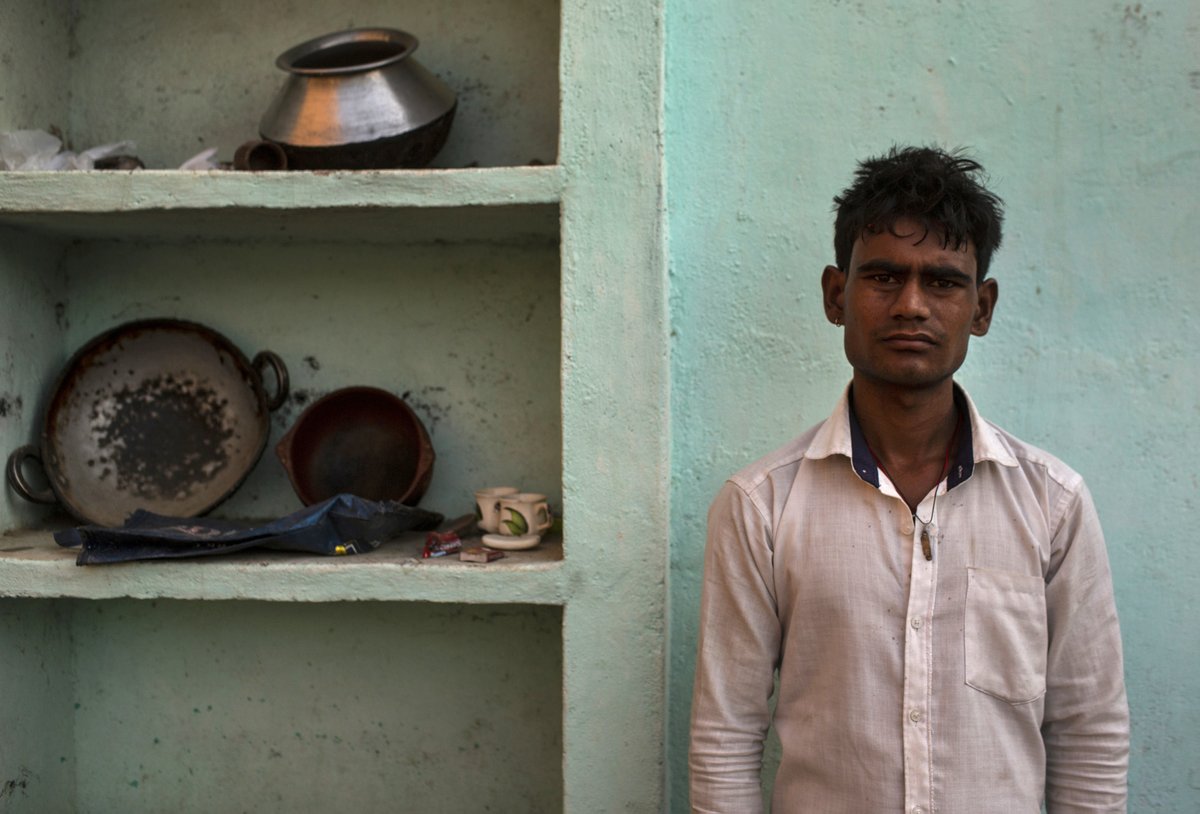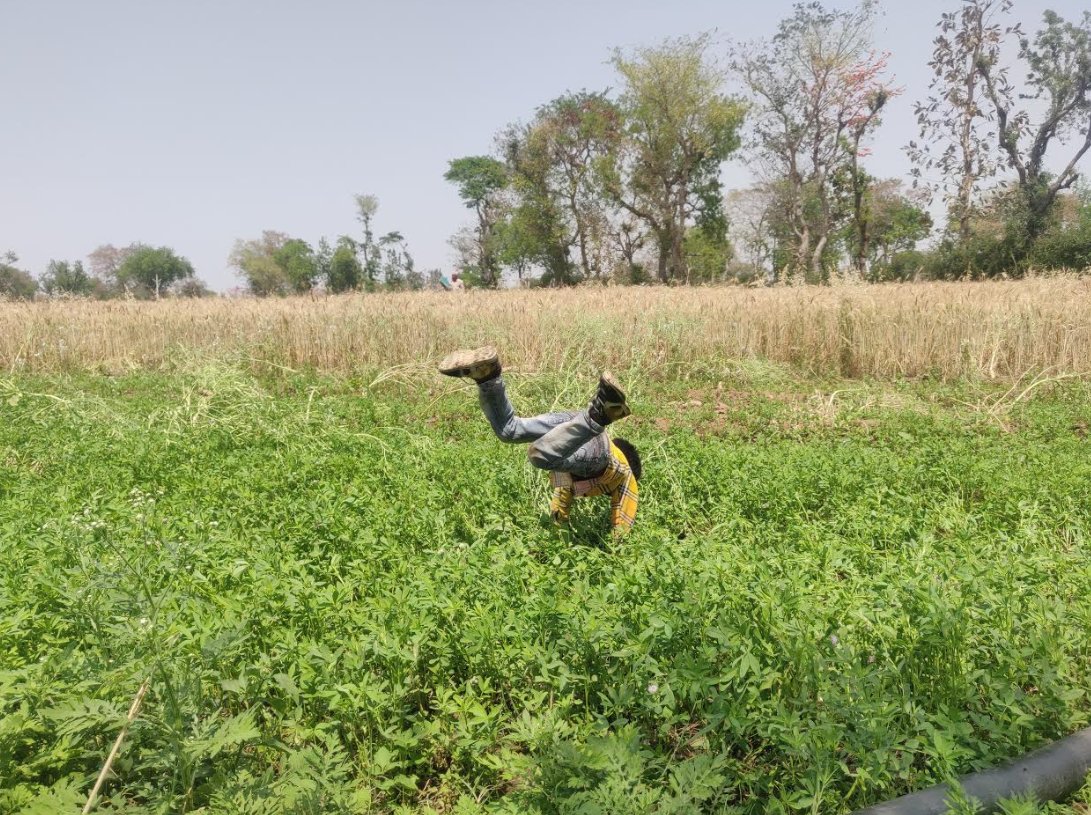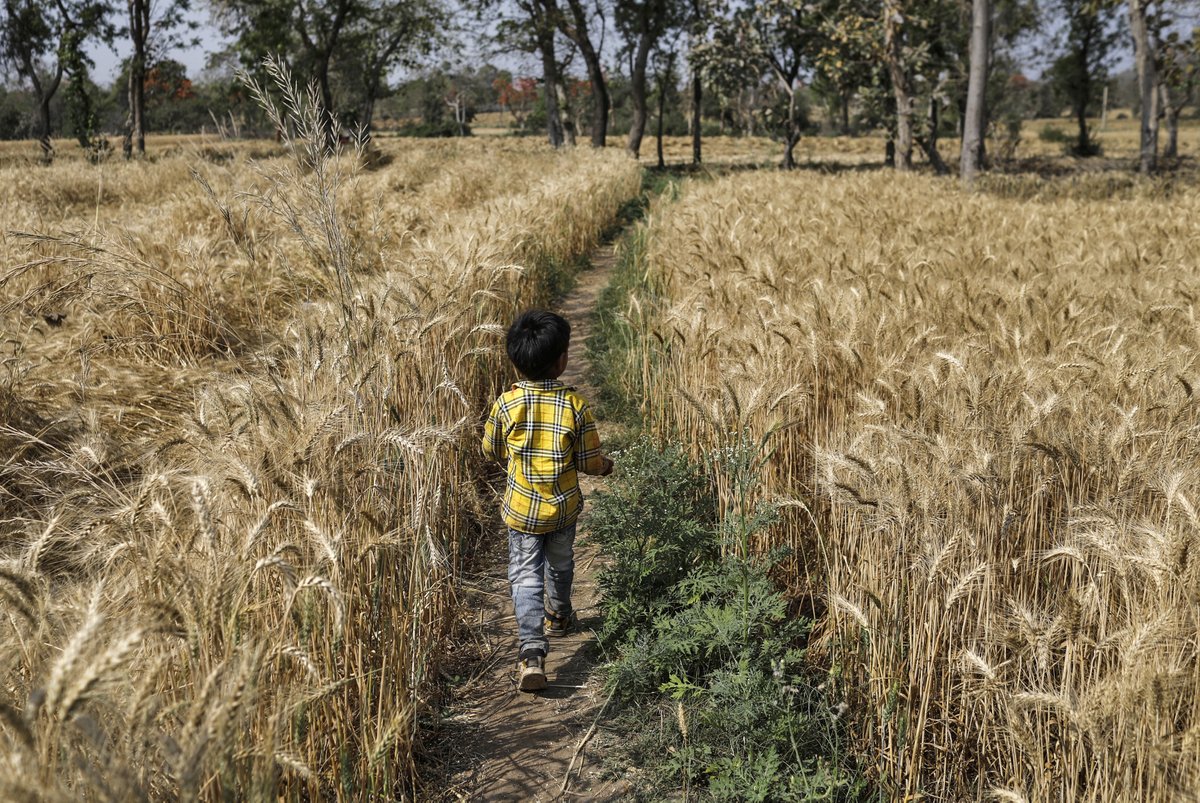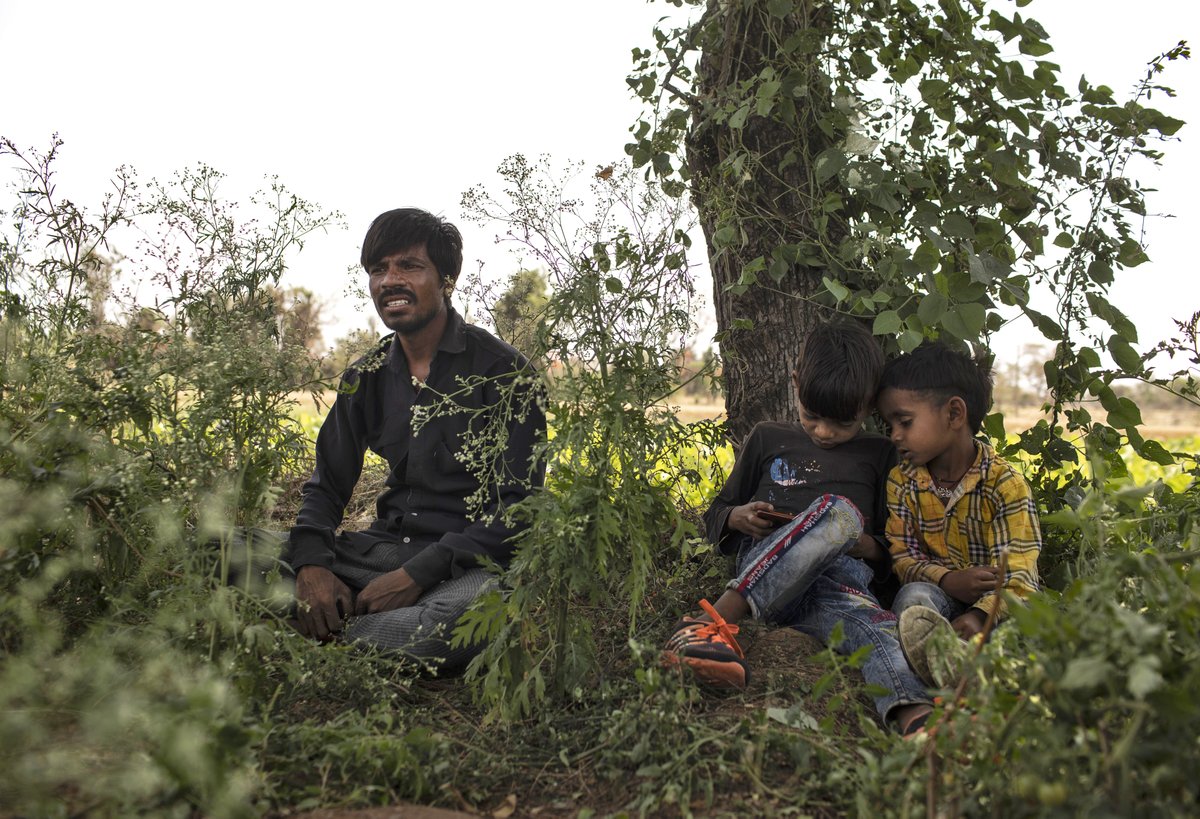The morning after India& #39;s coronavirus lockdown began, the building sites in Delhi where Dayaram Kushwaha worked fell silent.
So he hoisted his five-year-old son onto his shoulders, and began to walk back to his village.
This is what happened next.
https://reut.rs/2KnLmA8 ">https://reut.rs/2KnLmA8&q...
So he hoisted his five-year-old son onto his shoulders, and began to walk back to his village.
This is what happened next.
https://reut.rs/2KnLmA8 ">https://reut.rs/2KnLmA8&q...
By dusk on the second day, the 50-strong family had reached a deserted expressway running south out of the capital, which is where @dansiddiqui met them and took this unforgettable photo of Dayaram and his son, Shivam.
All around them, thousands of people were doing the same thing, in one of the biggest mass movements of people in the country since the partition of India and Pakistan in 1947.
The threat of coronavirus is real in India, but so too is the threat from shutting an economy where hundreds of millions live day-to-day.
What would happen when Dayaram and Shivam arrived back in the village? We set off to find out.
What would happen when Dayaram and Shivam arrived back in the village? We set off to find out.
It& #39;s ten hours from Delhi to the village in Madhya Pradesh where the family lives (or 13 if you run into any police officers who don& #39;t know or care about rules for journalists during the lockdown).
Life in India is lived on the roads; scenes like these are extraordinary.
Life in India is lived on the roads; scenes like these are extraordinary.
In the family& #39;s hut, a poster hangs on the wall. It depicts a red-roofed house on a lake, sun setting behind snow-capped mountains. A pair of mallard ducks fly overhead.
“I want to turn the clock back to when people lived in small villages and took care of each other,” it says.
“I want to turn the clock back to when people lived in small villages and took care of each other,” it says.
But for Dayaram and his family, life back here is even more difficult than the shanty town in Delhi they had migrated to. After three days harvesting wheat, they received no cash payment, just 50 kilos of the crop to take the village flour mill.
Rural India has been emptying out for decades. To many people, the decision is one of simple arithmetic: to earn $6 per day instead of $3 back home. In the arid Bundelkhand region of Madhya Pradesh, it& #39;s hard to find someone that hasn& #39;t left at some point.
And yet despite everything they had been through, Shivam and his elder brother Mangal - left behind in the village - were happy kids. They watched cartoons, chased dragonflies and practiced their cartwheels (not always successfully) as their parents worked.

 Read on Twitter
Read on Twitter

